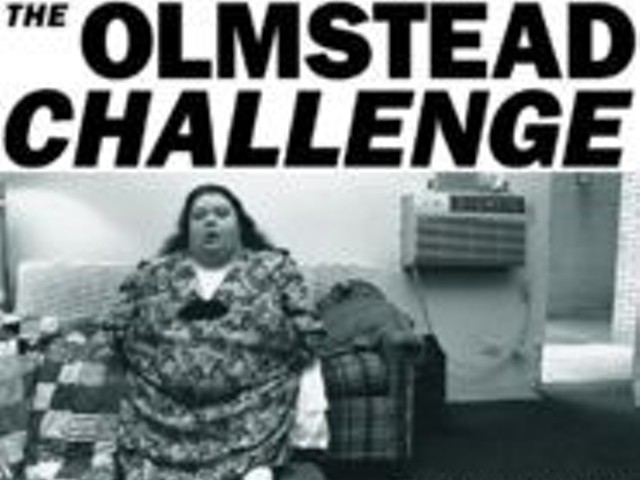The effort by the Delawares of Western Oklahoma to attract the interest of Kinloch officials comes after a tribal representative held a similar discussion late last year with a top St. Louis official. In that case, the tribe's local lawyer pitched a plan to build an Indian casino downtown, near the proposed convention-center hotel ("This Land Is Their Land," RFT, Dec. 8). At the time, city officials expressed little interest in the idea.
With negotiations with St. Louis at a standstill, a tribal representative began to make quiet overtures elsewhere, including Kinloch, where Mayor Keith Conway and other city officials were approached.
The idea of converting some of Kinloch's empty acreage into a gambling mecca has remained a closely guarded secret until now. No formal proposal to develop the area has been made by the tribe, although preliminary talks were held with the tribe's legal counsel, who also represents the interests of St. Louis County.
Ald. Leonard Carter Sr. says that a lawyer for the St. Louis County Housing Authority proposed the casino idea to Kinloch officials several months ago. "As far as I know, it's still active, because they haven't got back to us and told us it's going any other way. I think it would be beneficial to the community," Carter says of the casino proposal. The alderman is optimistic that revenue from such a development would significantly increase Kinloch's tax base and help solve the city's economic woes. Interest in the Kinloch location has been spurred by its proximity to interstates 70 and 170, Carter says. Having Lambert-St. Louis International Airport as a neighbor, of course, would also help draw patrons to the casino.
The law firm of Green Schaaf & Jacobson represents both the St. Louis County Housing Authority and the Western Delawares. Martin Green, senior partner in the firm, will say only that disclosure of the discussions with Kinloch would be "premature." Asked whether an Indian tribe has been pursuing the development of a casino in Kinloch, Mayor Conway declines to comment, other than to say, "There's something in the air."
Construction of the Kinloch casino would be contingent on a swap of land that the Western Delawares claim to have inhabited in Southeast Missouri during the early 19th century. The tribal claim would have to be recognized by an act of Congress and granted state approval before it could move forward. The Western Delawares made a similar but unsuccessful attempt to establish a casino in New Jersey in 1995.
The tribe's efforts in Missouri were formally announced in a letter from Chief Lawrence Snake to Gov. Mel Carnahan on Dec. 3. The letter lists Green and Joe D. Jacobson as the Western Delawares' attorneys. Green is a prominent fundraiser for Carnahan's bid for the U.S. Senate.
The Western Delaware tribe, which is headquartered in Anadarko, Okla., operates a bank on its Oklahoma reservation that has drawn scrutiny from state and federal regulators.
Because the bank is operated on tribal land, which is sovereign terrritory, the Western Delawares contend the bank is not subject to state and federal banking regulations. This mirrors the argument that Indian tribes successfully made more than a decade ago, when they first started establishing gambling facilities on their reservations. The Indian gambling industry, which now operates under the auspices of the federal Indian Gaming Act, has grown into a multibillion-dollar business.





